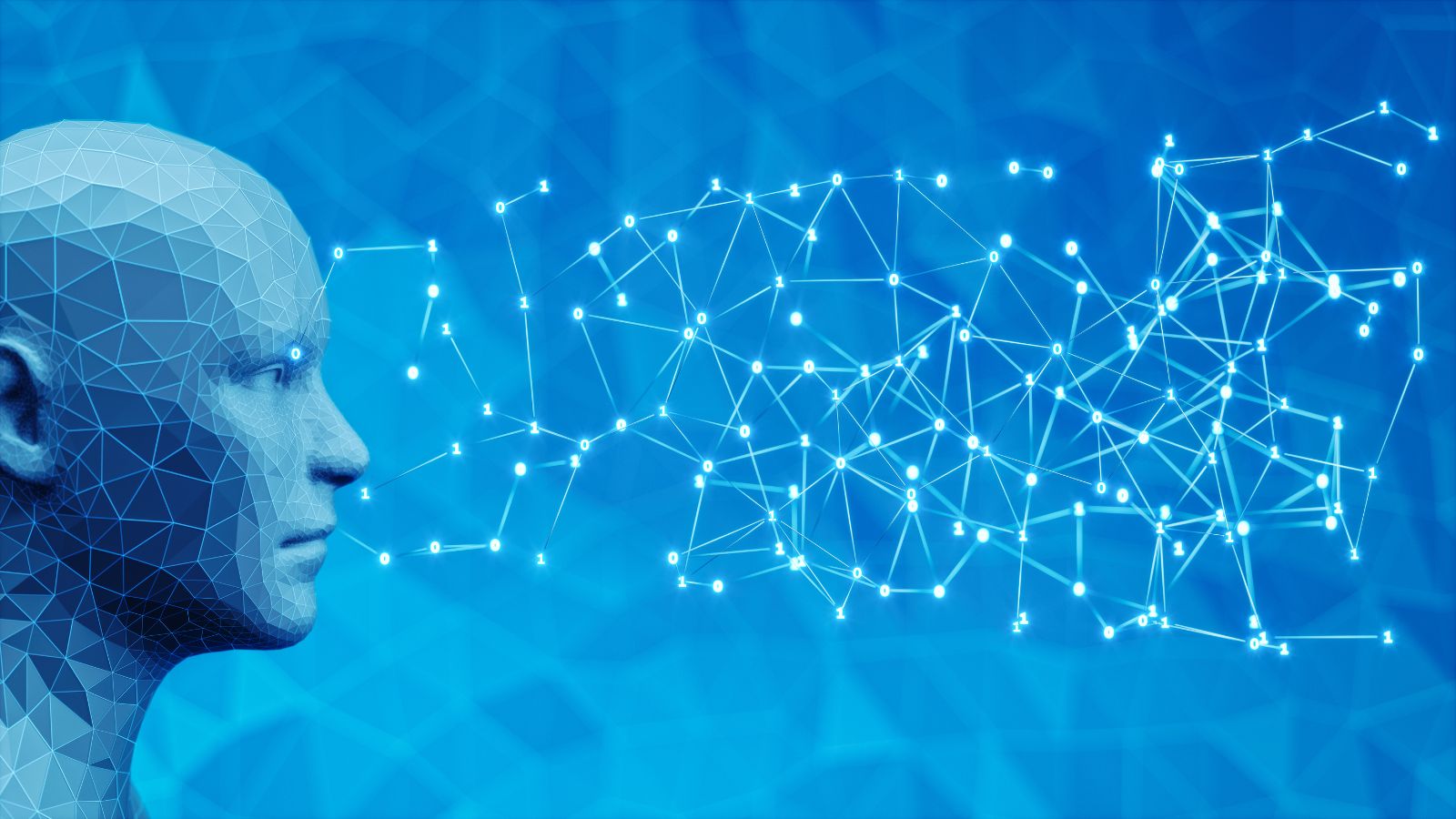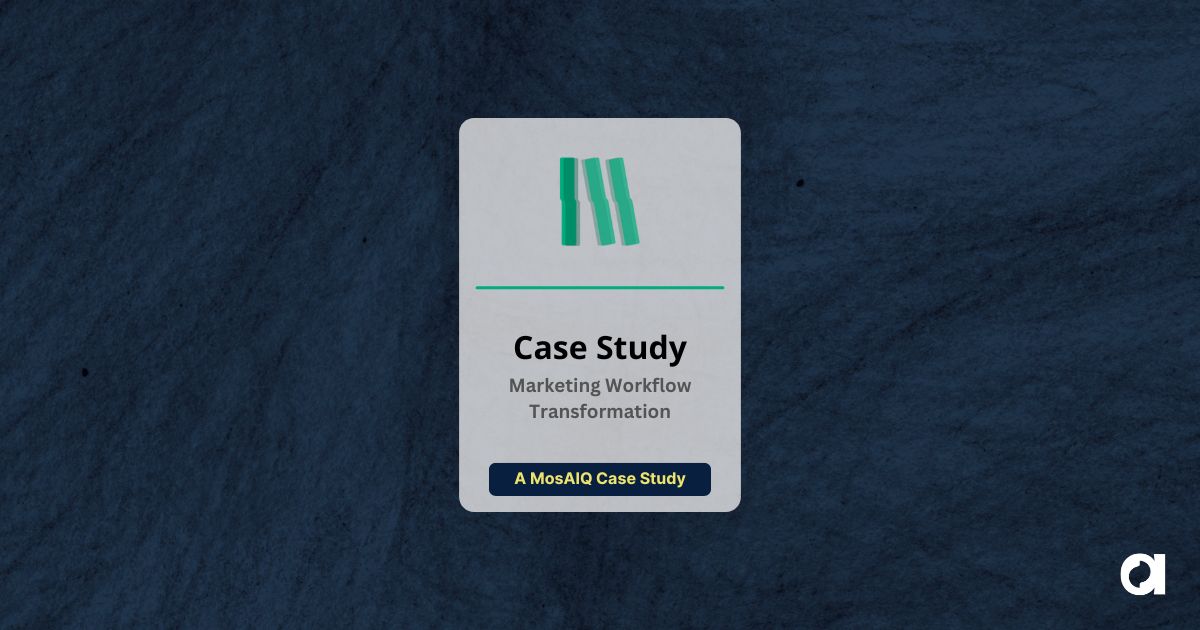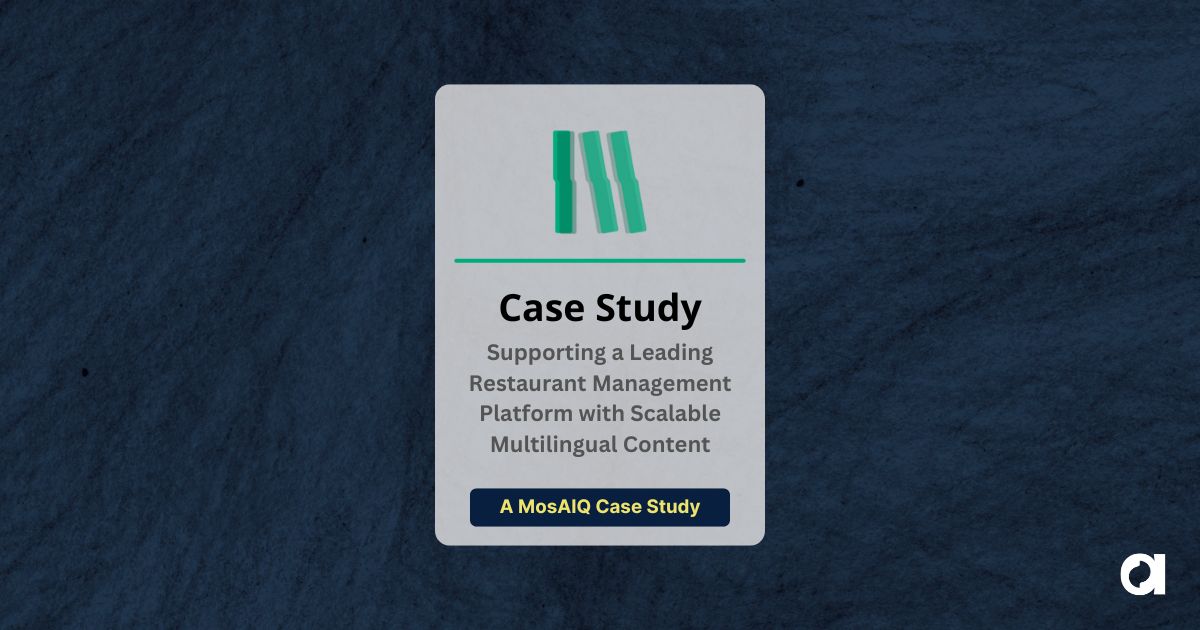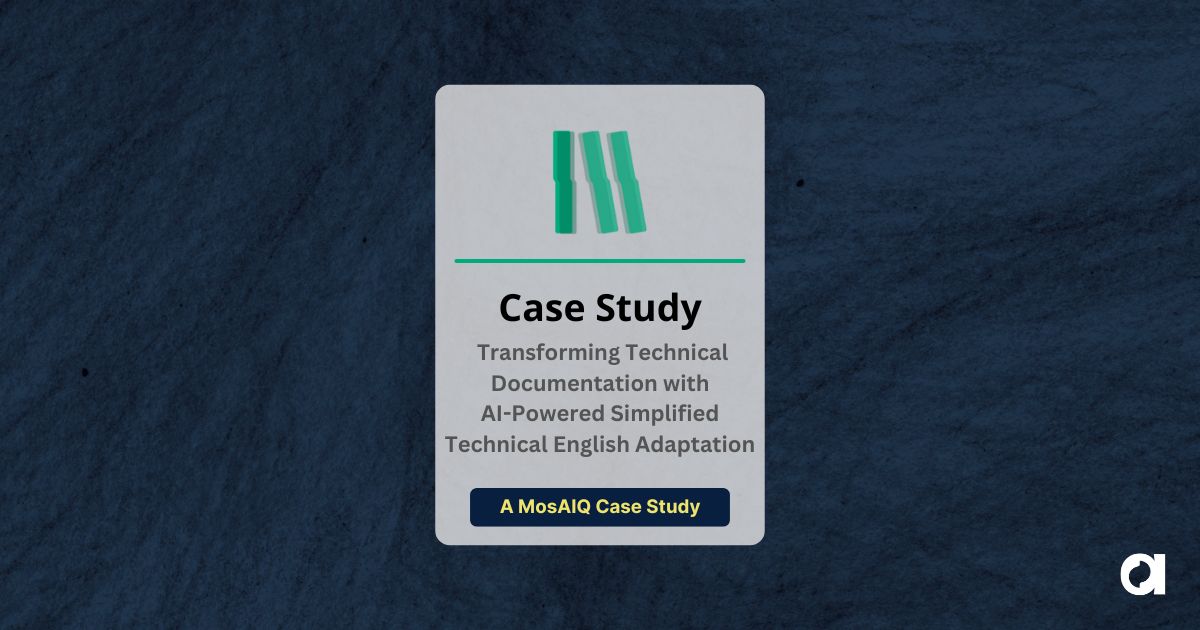Artificial intelligence (AI) is bringing changes so quickly that sometimes it feels like we’re all catching up. This is especially true in the language services, where the pace of AI development is pushing the boundaries of what’s possible in translation and localization.
In this blog series, we’ve looked at how AI and localization work together, how to get started with AI, ethics and risk mitigation, and how companies are using AI. We’ve seen that AI’s wide range of applications means there’s no “right way” to use it. So far, it’s being used for basic process automation all the way to futuristic real-time multilingual communication and automatic SEO and sentiment analysis—just to name a few examples.
While it’s not yet clear how AI will evolve, we wanted to show you how Argos Multilingual is using AI today—so you can see firsthand how these advancements can benefit your projects.
Offering the Best of Both Worlds
It’s just common sense to use tools and processes that work. AI enables us to handle projects with greater speed and efficiency, lower cost, and consistent quality. For us it’s simple—we’ve embraced AI because it helps us meet your needs more effectively.
Argos’ AI strategy centers on using AI to handle repetitive and time-consuming tasks, which allows our human experts to focus on areas requiring creativity, critical thinking, and a personal touch. We believe that AI should augment humans, not replace them, because a technology-forward, humans-in-the-loop approach leads to more accurate, culturally appropriate, and better-quality localized content.
How Argos Uses AI for Better, Faster and More Accurate Localization
The localization industry is fortunate because we’ve been working with AI in the form of AI neural machine translation (NMT) for almost a decade now. Argos’ machine translation (MT) solutions are powered by NMT and have helped localization to be scalable, more affordable, and better quality, especially when combined with human post-editing.
We’ve also developed customized, adaptive NMT engines trained on domain-specific datasets and translation memories (TM). This allows us to produce highly accurate translations tailored to specific industries and content types. Our NMT engines learn from past translations and quickly adapt to new content types, ensuring robust translations across diverse industries.
Here at Argos, we have integrated AI into many other areas of our work, including:
AI-Enhanced Translation
Our Hybrid AI Translation Workflow strikes a balance between the rapid processing capabilities of AI and human expertise. We can translate large volumes of content faster without sacrificing the quality and cultural context that only humans can provide. By leveraging AI for initial translations and using human reviewers to review and refine the content, we ensure that the final deliverable meets your requirements.
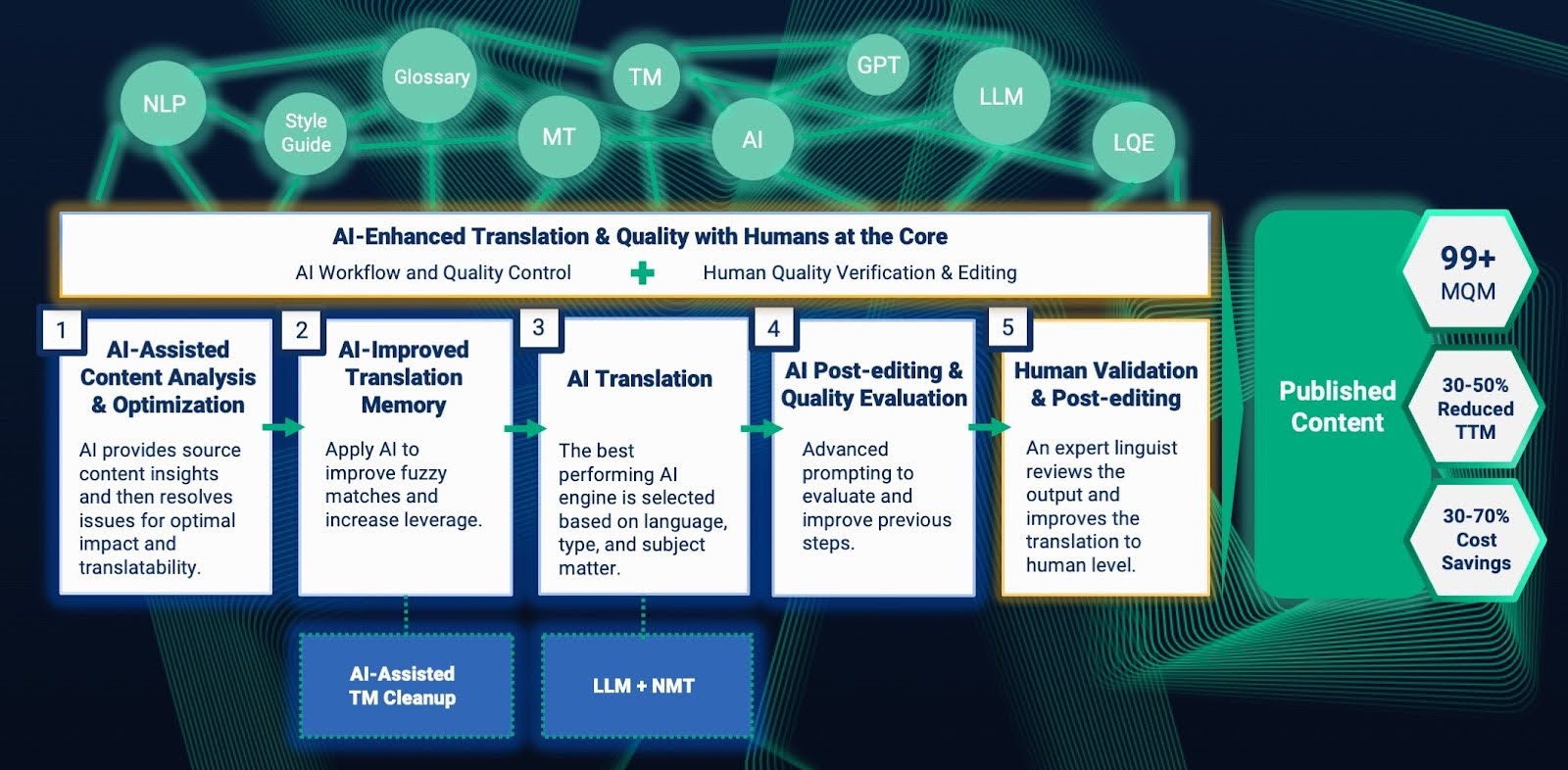
AI TM Cleanup
Before AI, reviewing translation memories and removing old or inconsistent terms was a manual process that was time- and cost-prohibitive. But all of this has changed with AI.
Today, Argos harnesses the power of AI to identify duplicate or inconsistent segments, which are reviewed and removed by human linguists. This process allows TMs to be cleaned quickly and more affordably. Regular TM maintenance ensures that translation databases are consistent, error-free, and up to date, which improves translation quality and accuracy.
Ariel, a leading manufacturer of gas compressors, partnered with Argos for our AI TM Cleanup service. They wanted to process some content exclusively with MT, but the quality of the MT output had to improve before they could switch to a “MT and publish” process. The first step to improve the MT output was to clean up their translation memories. The AI TM Cleanup helped Ariel to experience lower post-editing costs, consistent quality, and faster time-to-market.
Another example is a life science customer who used their cleaned TM to train their machine translation engine. They found the quality of their MT output increased by 20-25% for their most commonly used languages, and review costs decreased by 80% because reviewers were able to focus only on the most significant errors. This underscores the fact that in order to achieve good results, good input is needed at the start.
AI in Linguistic Quality Assurance
Recall functionality is an outstanding feature of Large Language Models (LLMs). LLMs remember very well, and this is useful when it comes to quality assurance, especially when the final translation quality needs to be validated across large sets of unstructured data like language and regulatory guidelines, glossaries, standards, case studies, and other documents.
Argos has harnessed this LLM recall functionality in our QA Tool solution. Using focused and client-specific LLM instances with our extensive set of QA validation rules, we are able to perform more thorough final quality validation on deliverables.
AI Content Generation, Verification, and Editing
Combining AI with human expertise, our content verification and editing process ensures that AI-generated content meets the highest standards of accuracy and brand alignment.
In this case study, we explore how Argos creates AI-generated human-verified articles in 13 languages for a global employment website company. An AI approach reduced the time spent on each article from eight hours to just two, without compromising on quality. This workflow allowed this client to scale their content production efficiently and lower content creation costs—all while maintaining the high standards.
Transcription, Text-to-Speech, and Speech-to-Text
Argos offers communication services enabled by AI that are faster and more robust than ever before. Our AI-powered tools allow us to convert spoken language into written text and vice versa, enhancing accessibility and enabling accurate and efficient transcription, text-to-speech (TTS), and speech-to-text (STT) use cases.
These tools can transcribe multilingual conference calls in real time, making the content accessible to a broader audience more quickly. Additionally, we use AI-enabled text-to-speech applications to generate voiceovers for e-learning modules, ensuring clear and consistent delivery across various languages.
Transcreation
Transcreation involves not just translating content, but adapting it to ensure it is culturally relevant and resonates with the target audience. We use AI to assist with the initial draft of the multilingual content, followed by a human review to ensure cultural relevance and nuance. By leveraging AI for first drafts and having our human experts refine the content, we speed up the process while maintaining quality and accuracy.
Embracing a Multilingual Future with AI
AI is a powerful tool that offers new opportunities for localization. So far, we’ve been leveraging AI for process automation, quality improvement, and efficiency—and we’re just getting started. Our focus remains on striking the right balance between technology and human expertise to deliver the best services to support our clients’ multilingual strategies.
To learn more about how AI is being used across the localization industry, we encourage you to download our Beyond the Hype: State of AI in Localization in 2024 report. The report examines the varied approaches companies are taking, the practical applications yielding the most immediate benefits, and the importance of continuous learning and adaptation in this evolving field.
 Argos Multilingual
7 min. read
Argos Multilingual
7 min. read
In the world of luxury fashion, maintaining a brand’s unique voice and style across diverse global markets is both a challenge and an art form. Transcreation adapts content to connect with different cultures, ensuring that the company’s message feels authentic and engaging no matter where it’s received. The fashion sector isn’t just about high-quality products; […]

 Argos Multilingual
7 min. read
Argos Multilingual
7 min. read
Artificial Intelligence (AI) is bringing new ideas and technology to the localization industry, offering fresh opportunities and unique challenges. Our latest research, Beyond the Hype: State of AI in Localization in 2024, sheds light on how AI is currently utilized, the challenges faced, and the successes achieved by localization teams. This latest installment of our […]
